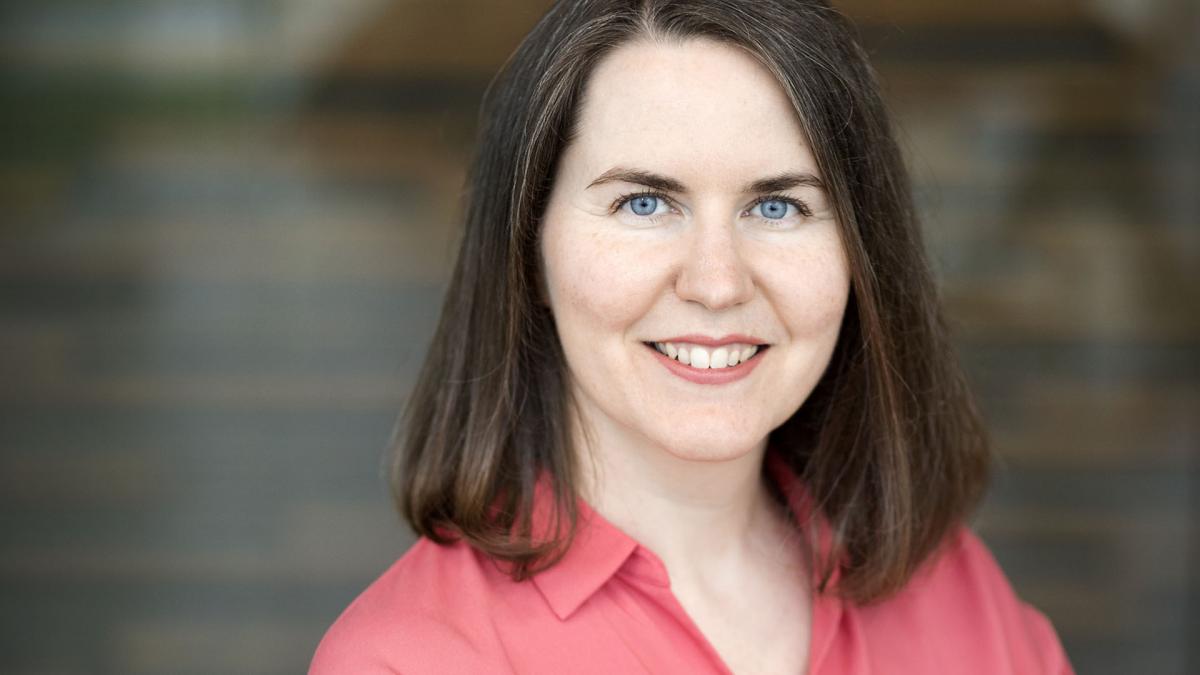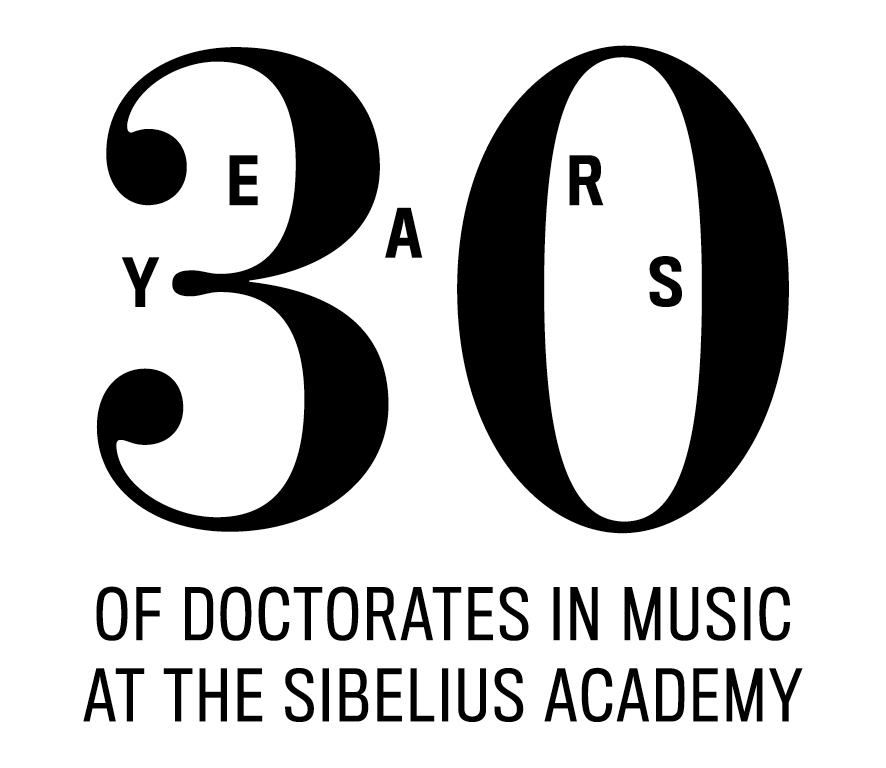Public examination of the doctoral dissertation of Danielle Treacy

Title of the dissertation: Imagining Possibilities: Musician-Teachers Co-Constructing Visions in the Kathmandu Valley.
Opponent: Professor Margaret Barrett (The University of Queensland, Australia)
Examiners of the dissertation: Professor Margaret Barrett (The University of Queensland, Australia) and Professor Sandra Stauffer (Arizona State University)
Custos: Professor Heidi Westerlund (Sibelius Academy of the University of the Arts Helsinki)
Abstract
Treacy, Danielle Shannon (2020). Imagining possibilities: Musician-teachers co-constructing visions in the Kathmandu Valley. Sibelius Academy of the University of the Arts Helsinki. Studia Musica 80.
The intensifying diversity and rapid change characterizing contemporary societies challenges music teacher education globally to equip future teachers with the skills and understandings necessary for ethically engaging with uncertainty and difference. This doctoral research project, conducted in Nepal, addresses the idea that developing music teachers’ imaginations and capacities to envision the future may be of value in attending to such challenges. The project emerged following the 2010 introduction of music as a separate subject in the Nepali National Curriculum, and the subsequent collaboration initiated by representatives of the Nepal Music Center with representatives of the Sibelius Academy in order to develop music teacher education. The project directs the research interest to the perspectives of practitioners involved in music education in Kathmandu Valley schools, with particular attention to musician-teachers co-constructing visions. The overarching research question guiding the project was: How can musician-teachers’ co-constructing of visions contribute knowledge about the development of context-specific music teacher education in a situation of fast-paced social change and globalization? Three research sub-questions were constructed to address this overarching question:
1) What contextual issues frame practitioners’ envisioning of music education practices in Kathmandu Valley schools?
2) How might the process of co-constructing visions with musician-teachers in the Kathmandu Valley contribute to music teacher education in Nepal and beyond? and
3) How might the process of co-constructing visions with musician-teachers in the Kathmandu Valley contribute to understandings of cross-cultural music education research?
The theoretical framework extends educational researcher Karen Hammerness’ concept of teachers’ visions through socio-cultural anthropologist Arjun Appadurai’s theories of the imagination and the social and cultural capacity to aspire, also drawing on John Dewey’s theorisation of the continuum of ends-means. The methodology applies Appreciative Inquiry (AI) critically and reflexively, with ongoing consideration of issues of power, ethnocentrism and coloniality. The project took place in three stages from 2014 to 2019, and the empirical material was generated through observations in schools, interviews with school administrators and musician-teachers, and a series of seventeen workshops for musician-teachers guided by the Appreciative Inquiry 4D model of Discover, Dream, Design and Destiny. Beyond solely supporting the research project, the workshops were designed to facilitate collaborative professional learning. Over 50 musician-teachers in Nepal participated the project.
The results are reported in five international peer-reviewed articles that include: an examination and reflexive interpretation of the school-specific song practice in Kathmandu Valley private schools and the tensions that arise between vision and context through the case of assessment; a reflection on facilitating the process of co-constructing visions for music education in Nepal with musician-teachers in the Kathmandu Valley; an exploration of how the politics of legitimation intersect with music education and schooling in such a diverse context; and a problematization of the notion of shared visions for music education. These publications are summarised in the synthesizing text with particular attention to how they contribute to answering the research sub-questions. They are presented in their entirety as appendices.
The discussion offers a further layer of interpretation moving beyond the Nepali context. It argues that music education is not neutral, but entangled with various historical, political, economic and socio-cultural complexities. Moreover, it raises questions about how to develop music teacher professionalism in contexts lacking music teacher education, and emphasizes the need for music teachers to be able to ethically navigate past, present and future musical practices in changing societies. The discussion also highlights four interconnected capacities of importance when developing pre- and in-service music teacher education: envisioning, reflecting, inquiring, and learning collaboratively. In addition, four methodological and ethical complexities related to cross-cultural research are presented: the need to balance appreciative and critical approaches; to reflect on the ethics of inquiry as intervention; to navigate aspirations and obstacles to collaboration; and to reflect on being and becoming as a researcher.
Further information: Danielle Treacy, danielle.treacy@uniarts.fi

30 years of doctorates in music at the Sibelius Academy
In 2020, it will be 30 years since the first doctors of music graduated from the Sibelius Academy. So far, over 200 graduates have completed a doctorate in music. The internationally esteemed and groundbreaking doctoral programmes offered by the University of the Arts Helsinki’s Sibelius Academy train professionals for demanding expert positions in the arts, research and educational sector.
Title of the dissertation: Imagining Possibilities: Musician-Teachers Co-Constructing Visions in the Kathmandu Valley.
Opponent: Professor Margaret Barrett (The University of Queensland, Australia)
Examiners of the dissertation: Professor Margaret Barrett (The University of Queensland, Australia) and Professor Sandra Stauffer (Arizona State University)
Custos: Professor Heidi Westerlund (Sibelius Academy of the University of the Arts Helsinki)
Abstract
Treacy, Danielle Shannon (2020). Imagining possibilities: Musician-teachers co-constructing visions in the Kathmandu Valley. Sibelius Academy of the University of the Arts Helsinki. Studia Musica 80.
The intensifying diversity and rapid change characterizing contemporary societies challenges music teacher education globally to equip future teachers with the skills and understandings necessary for ethically engaging with uncertainty and difference. This doctoral research project, conducted in Nepal, addresses the idea that developing music teachers’ imaginations and capacities to envision the future may be of value in attending to such challenges. The project emerged following the 2010 introduction of music as a separate subject in the Nepali National Curriculum, and the subsequent collaboration initiated by representatives of the Nepal Music Center with representatives of the Sibelius Academy in order to develop music teacher education. The project directs the research interest to the perspectives of practitioners involved in music education in Kathmandu Valley schools, with particular attention to musician-teachers co-constructing visions. The overarching research question guiding the project was: How can musician-teachers’ co-constructing of visions contribute knowledge about the development of context-specific music teacher education in a situation of fast-paced social change and globalization? Three research sub-questions were constructed to address this overarching question:
1) What contextual issues frame practitioners’ envisioning of music education practices in Kathmandu Valley schools?
2) How might the process of co-constructing visions with musician-teachers in the Kathmandu Valley contribute to music teacher education in Nepal and beyond? and
3) How might the process of co-constructing visions with musician-teachers in the Kathmandu Valley contribute to understandings of cross-cultural music education research?
The theoretical framework extends educational researcher Karen Hammerness’ concept of teachers’ visions through socio-cultural anthropologist Arjun Appadurai’s theories of the imagination and the social and cultural capacity to aspire, also drawing on John Dewey’s theorisation of the continuum of ends-means. The methodology applies Appreciative Inquiry (AI) critically and reflexively, with ongoing consideration of issues of power, ethnocentrism and coloniality. The project took place in three stages from 2014 to 2019, and the empirical material was generated through observations in schools, interviews with school administrators and musician-teachers, and a series of seventeen workshops for musician-teachers guided by the Appreciative Inquiry 4D model of Discover, Dream, Design and Destiny. Beyond solely supporting the research project, the workshops were designed to facilitate collaborative professional learning. Over 50 musician-teachers in Nepal participated the project.
The results are reported in five international peer-reviewed articles that include: an examination and reflexive interpretation of the school-specific song practice in Kathmandu Valley private schools and the tensions that arise between vision and context through the case of assessment; a reflection on facilitating the process of co-constructing visions for music education in Nepal with musician-teachers in the Kathmandu Valley; an exploration of how the politics of legitimation intersect with music education and schooling in such a diverse context; and a problematization of the notion of shared visions for music education. These publications are summarised in the synthesizing text with particular attention to how they contribute to answering the research sub-questions. They are presented in their entirety as appendices.
The discussion offers a further layer of interpretation moving beyond the Nepali context. It argues that music education is not neutral, but entangled with various historical, political, economic and socio-cultural complexities. Moreover, it raises questions about how to develop music teacher professionalism in contexts lacking music teacher education, and emphasizes the need for music teachers to be able to ethically navigate past, present and future musical practices in changing societies. The discussion also highlights four interconnected capacities of importance when developing pre- and in-service music teacher education: envisioning, reflecting, inquiring, and learning collaboratively. In addition, four methodological and ethical complexities related to cross-cultural research are presented: the need to balance appreciative and critical approaches; to reflect on the ethics of inquiry as intervention; to navigate aspirations and obstacles to collaboration; and to reflect on being and becoming as a researcher.
Further information: Danielle Treacy, danielle.treacy@uniarts.fi

30 years of doctorates in music at the Sibelius Academy
In 2020, it will be 30 years since the first doctors of music graduated from the Sibelius Academy. So far, over 200 graduates have completed a doctorate in music. The internationally esteemed and groundbreaking doctoral programmes offered by the University of the Arts Helsinki’s Sibelius Academy train professionals for demanding expert positions in the arts, research and educational sector.